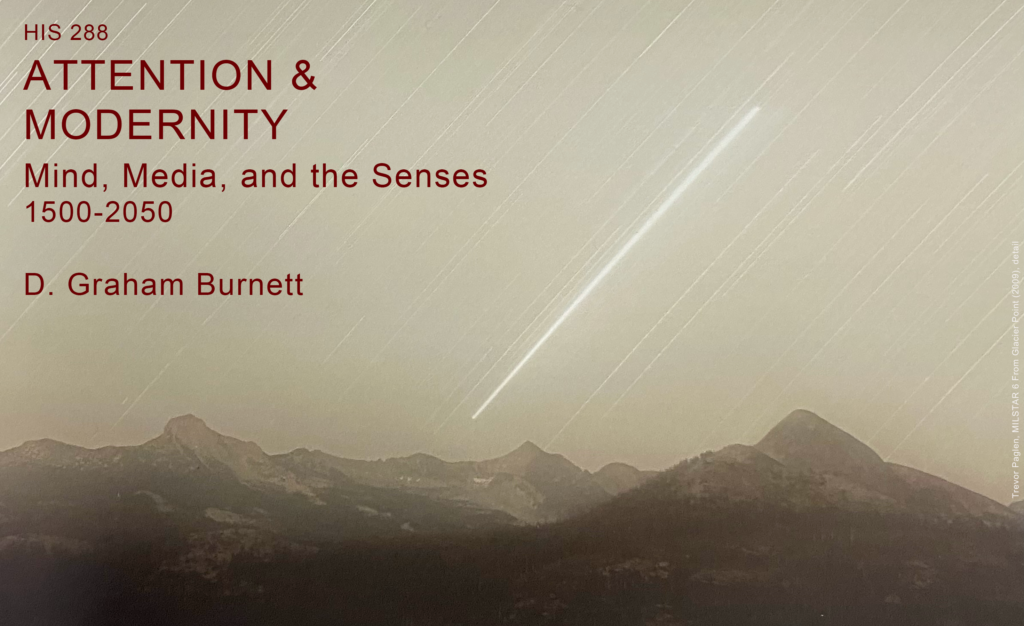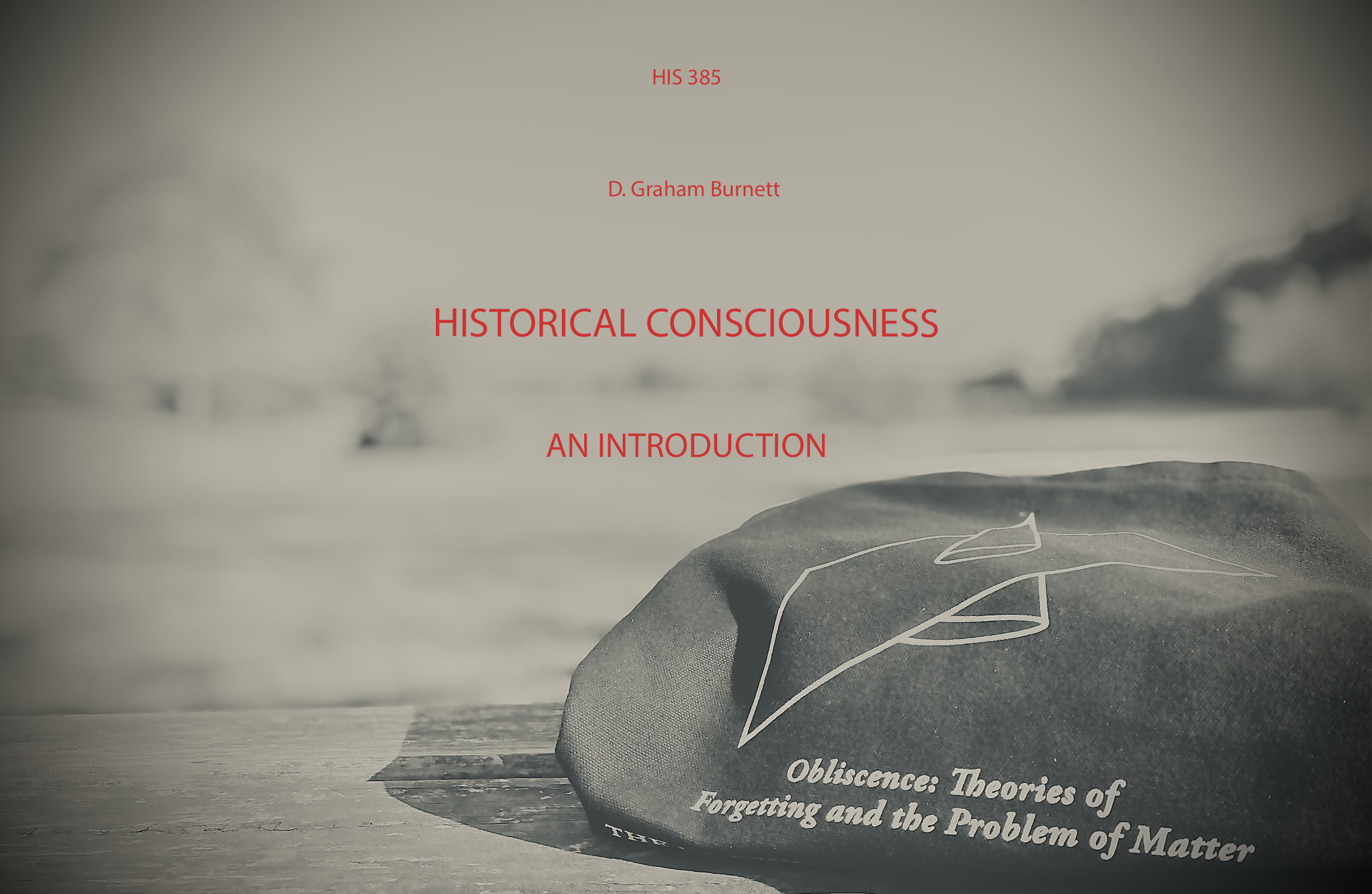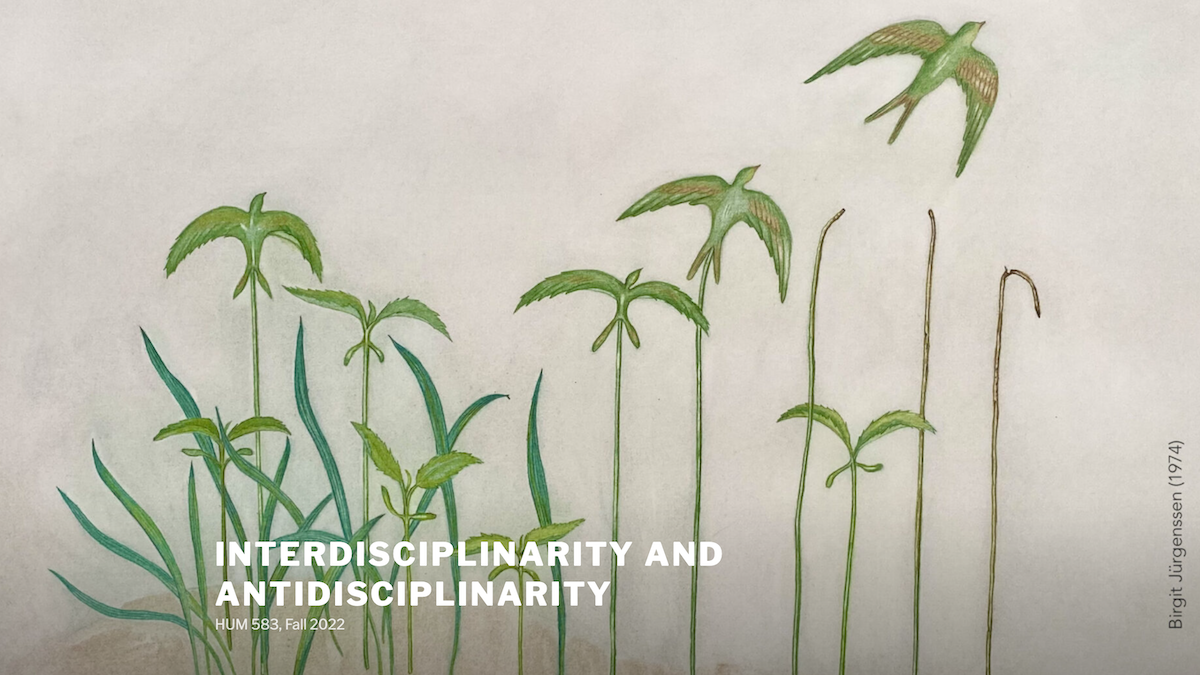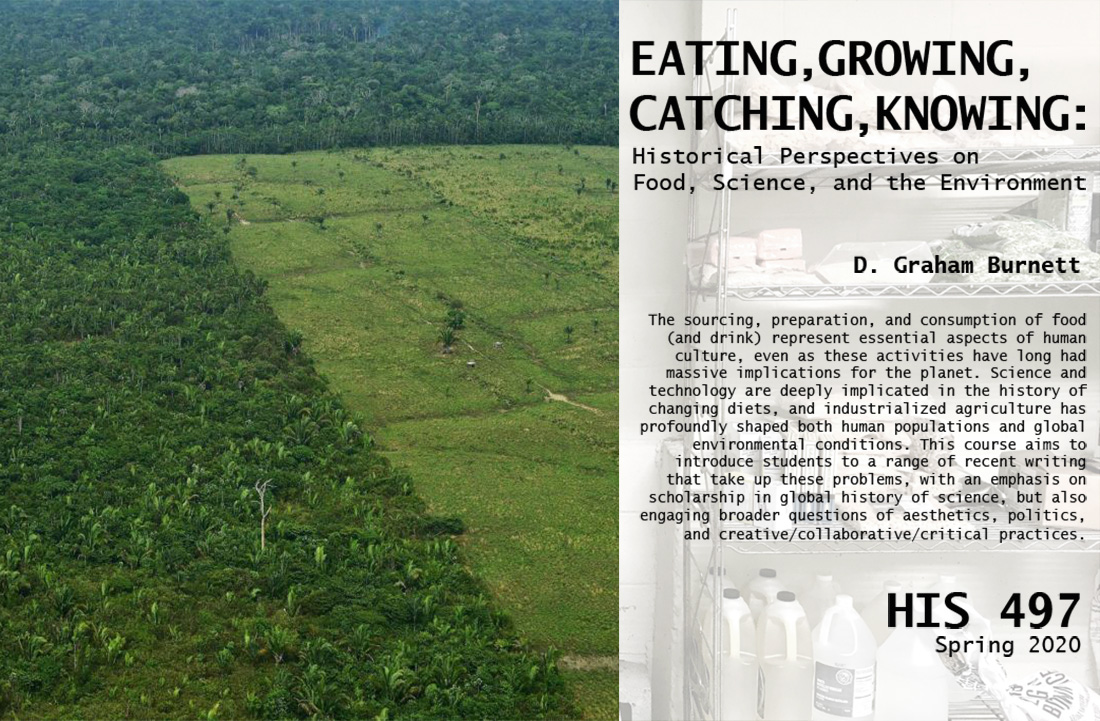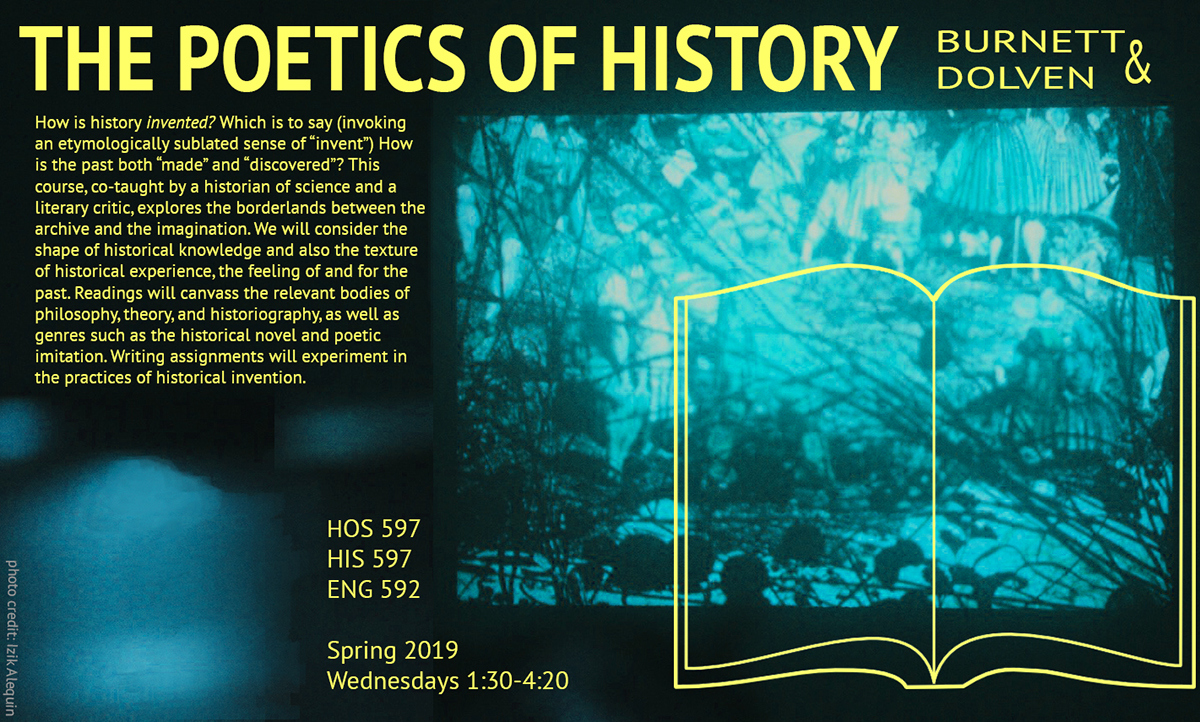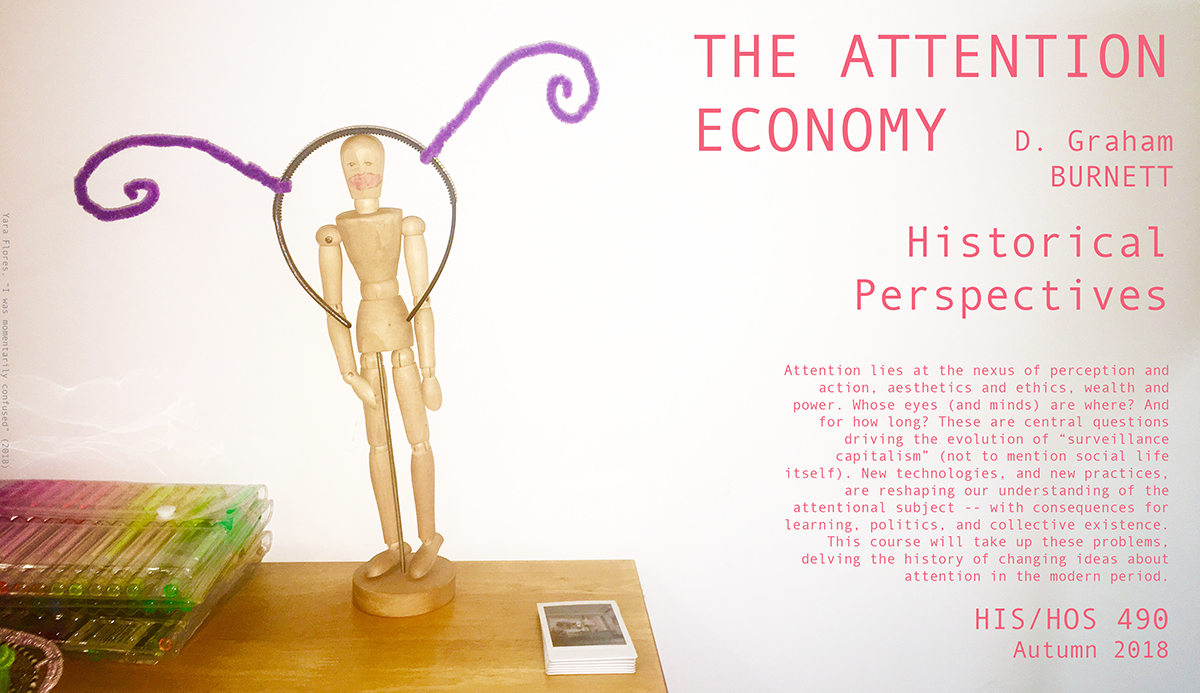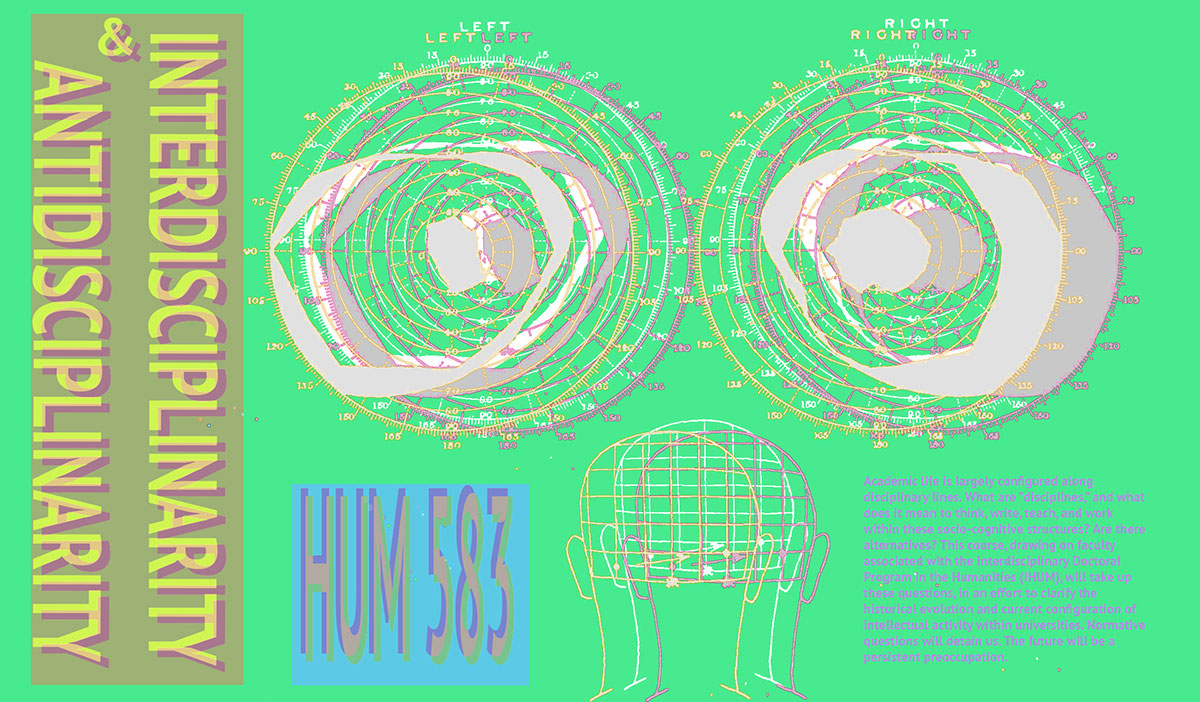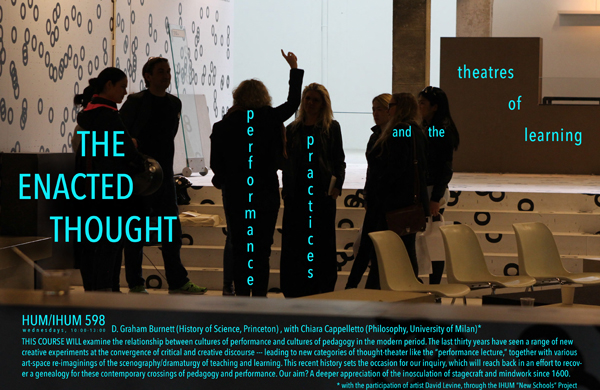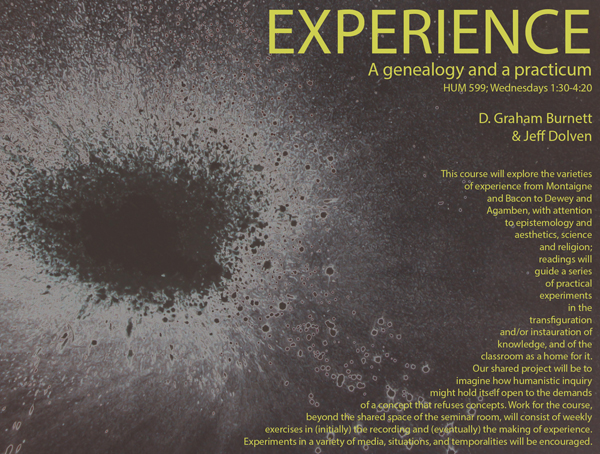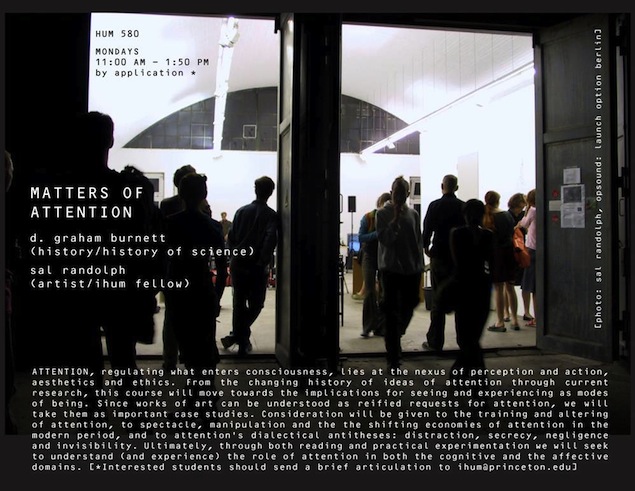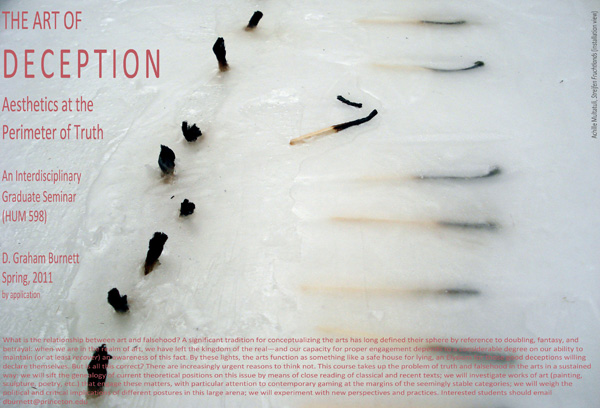Eating, Growing, Catching, Knowing: Historical Perspectives on Food, Science, and the Environment; HIS 497
Spring 2020
The Poetics of History; HIS/HOS 596 / ENG 592
Spring 2019
The Attention Economy: Historical Perspectives; HIS490
Fall 2018
The Enacted Thought; HUM/IHUM 598
Spring 2016
Experience; HUM599
Spring 2015
Things: Approaches to Material Culture; HIS/HOS 499
Spring 2015
Bibliography of Attention: Master Readings List
Syllabus I
Syllabus II
Spring 2013
Art, Science, Technology: Historical Perspectives; HOS 599
Spring 2011
The Art of Deception: Aesthetics at the Perimeter of Truth; HUM 598
Spring 2011
Science in a Global Context: From the Fifteenth to the Twentieth Century; HOS/HIS 293
Spring 2009
Critique and Its Discontents; HUM 599, with Jeff Dolven
Autumn 2011
Autumn 2008
Science and Religion: Historical Approaches; HOS/HIS 493
Spring 2008
Science from Enlightenment to the Present: Science, Technology, and Social Order; HOS/HIS 593
Autumn 2006
Humans and Animals: Boundaries and Bonds, Science and Sites; HOS/HIS 596
Spring 2005
Science Across the Seas: Ships, Islands, and Knowledge; HOS/HIS 599
Autumn 2002
Terra Incognita: Maps, Explorers and Encounters 1595-1900
Fall 1998
Origins: An Interdisciplinary Approach to Darwin and His Ideas
Spring 1997
Click on fliers for more information.
Burnett and Jeff Dolven co-teach a seminar entitled “Critique and Its Discontents,” a gateway course for Princeton’s new Interdisciplinary PhD Humanities Program (IHUM).
In Spring 2011, Burnett taught a seminar entitled “The Art of Deception: Aesthetics and the Perimeter of Truth”.
An early course flyer for “Critique and Its Discontents,” co-taught by Burnett and Jeff Dolven.
Professor Burnett regularly teaches the undergraduate lecture course “Science in a Global Context,” which traces developments in science and technology since 1400 with an emphasis on the place of scientific knowledge in the history of cross-cultural exchange, colonial expansion, and modern imperialism. (He co-hosted the 2002-03 Princeton Workshops in the History of Science, “Science Across the Seas: Global Science and Comparative History”). He has also taught seminars on the history of oceanography and on the history of the field sciences. In 2005 he led “Humans and Animals,” a graduate seminar that examines the role of the life sciences in changing conceptions of human-animal relationships and the human-animal boundary in the modern period, and in 2007 he taught a graduate seminar on the relationship between the history of science and political theory, “Science Technology and Social Order,” and he has also developed a course on the historical relationship between science and religion. Recent graduate teaching includes the introductory seminar on historiography and historical method, and several seminars in the Humanities Council on art and critical theory. In more recent years Burnett’s graduate teaching has focused on questions of science, technology, critical theory, and art, and he has become a regular contributor to the seminars offered under the auspices of the Interdisciplinary Doctoral Program in the Humanities (IHUM). The Department of History and the Program in History of Science, Burnett has regularly co-taught the introductory required methods seminar for incoming graduate students, History 500, “Introduction to the Professional Study of History. Click here for the transcript of a departmental symposium on the history of this course.
Follow this link to see Professor Burnett lecturing about Moby-Dick and Oceanography.
And click here to read about the freshman seminar (“The Beast in the Sea”) that Burnett taught in the spring of 2007.
